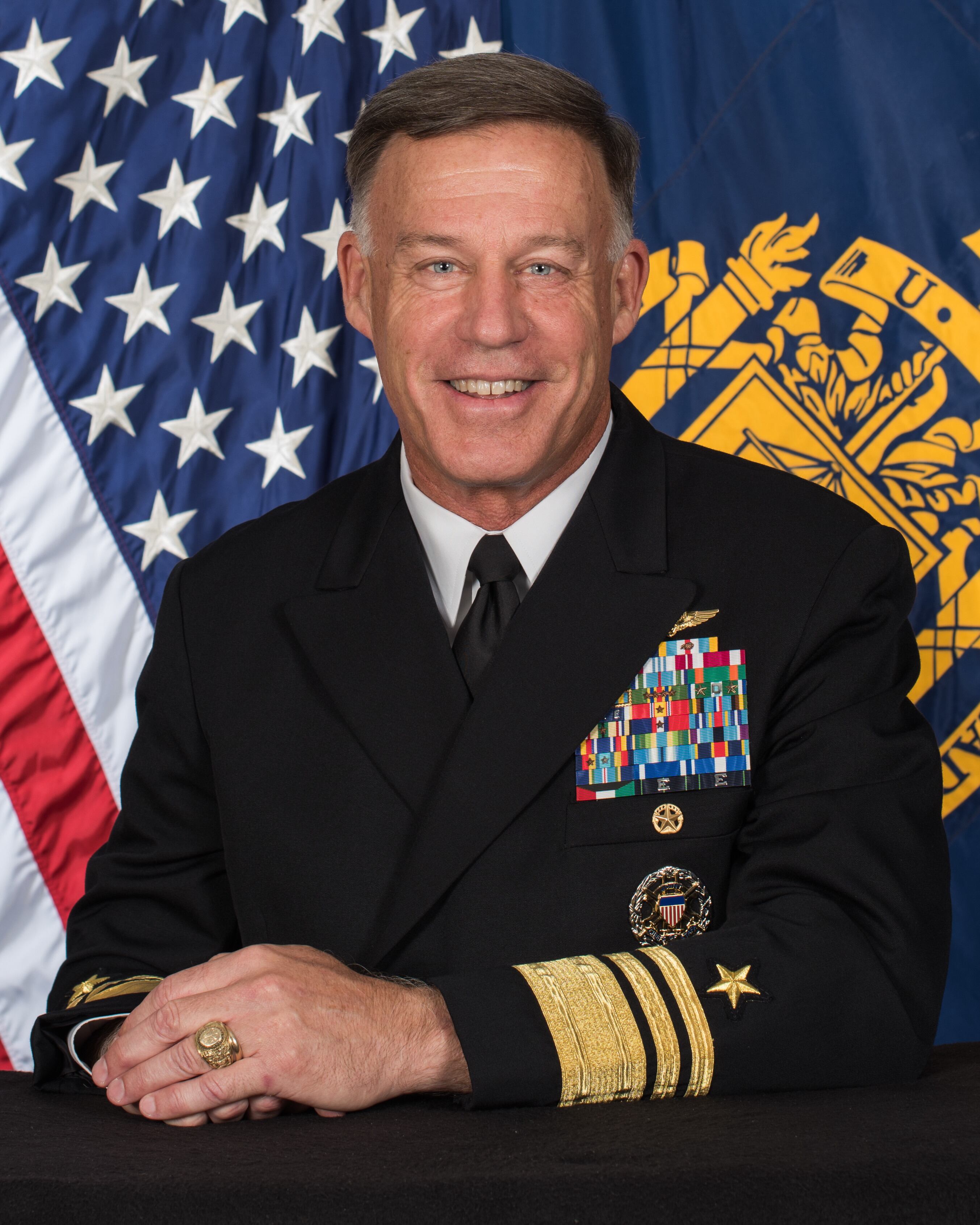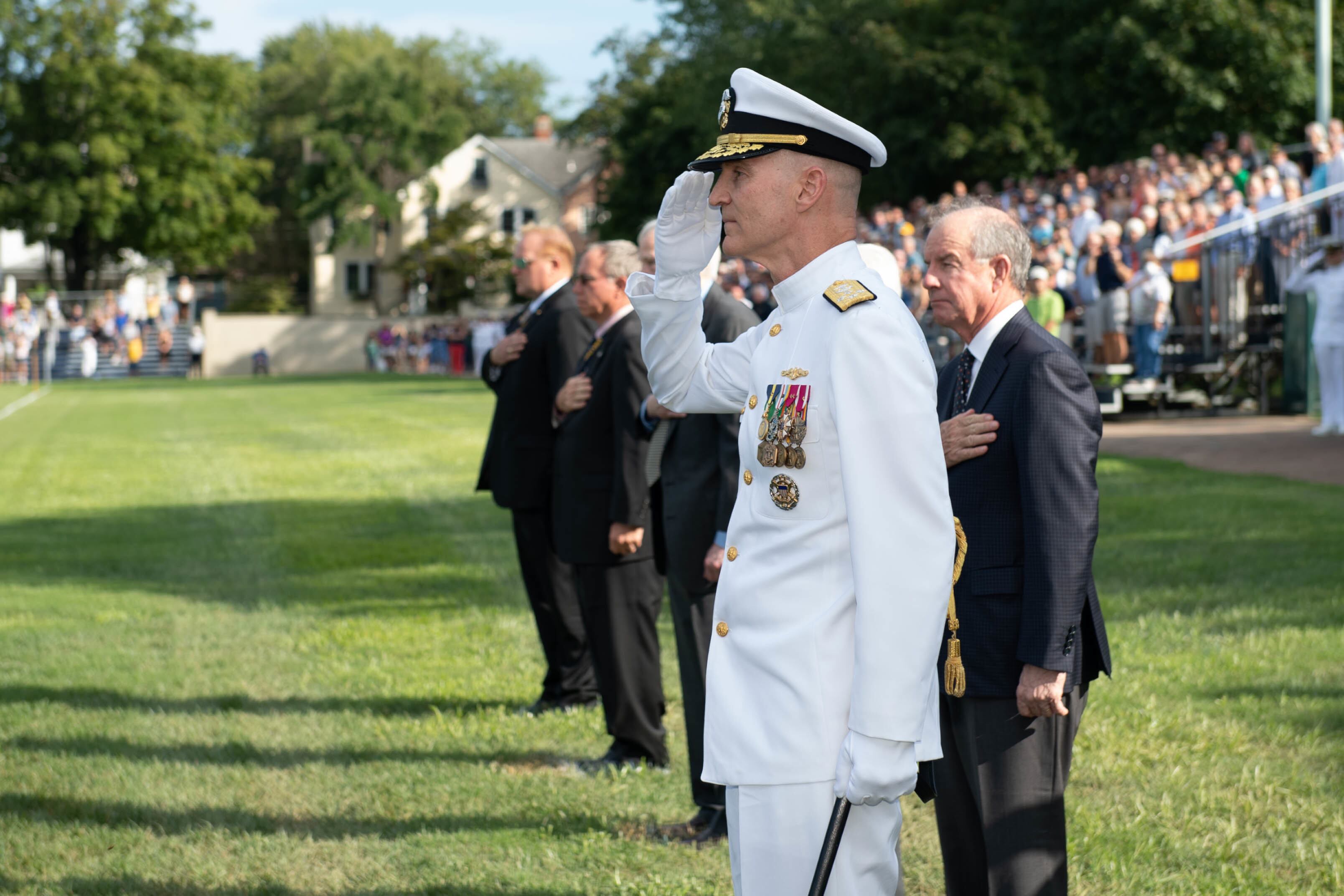USS INTREPID, HUDSON RIVER, NEW YORK — Navy Vice Adm. Sean Buck serves as the superintendent of the U.S. Naval Academy. Buck is a USNA graduate and commissioned as a naval officer in 1983, becoming a flight officer in 1985.
He became the 63rd superintendent of the Naval Academy in 2019.
Buck comes from a Navy family, his father was a career Navy officer and he has early memories of the storied Army Navy Game. The vice admiral spoke with Navy Times ahead of this year’s game about his experiences surrounding the annual event.
The questions and answers below were edited for clarity, content and length.
Q: What was your familiarity with the Army Navy Game before you became a midshipman?
A: My dad took me to my first Army Navy Game in Philadelphia when I was 8 years old in 1968. I was wowed by the pageantry. My father graduated from the USNA class of 1948A, it was the last of the divided short classes out of World War II, where midshipmen would complete their studies in three years instead of four. He became a naval aviator, served 30 years and retired at the rank of captain.
Q: What was your first game like as a midshipman?
A: It continued to be awe-inspiring for me as a plebe (freshman) in 1979. During the lead up to the game, which used to be played during the Thanksgiving holiday weekend, we were not allowed to go home, it was nothing but good, exciting fun. All of the hijinks, pep rallies, the level of emotion. Everybody was in a good mood. My first year Navy beat Army 31-7. It was a good experience for a plebe. Being able to march on the field and enjoy that, the respect and honor from the city of Philadelphia, it was just kind of one of those things that re-validated my decision to attend USNA. The team’s record while I was a student was 3-0-1.

Q: Once you left the academy and were serving in the fleet, what was your relationship to the game?
A: While I was commissioned, I attended the game in person four or five times with friends, classmates. That’s a very typical thing to do. Once the Army Navy Game is in your spirit, in your DNA, you drop what you’re doing wherever you are in the world and also make a really concerted effort to go back also periodically to the game.
I definitely watched them from whatever geographic location I was at — even airborne flying. I flew the P3 Orion aircraft. One time on a mission as a navigator in charge of communications I dialed up an HF radio frequency for the crew to hear periodic updates of the game.
Q: What has been your experience around the game since becoming the superintendent?
A: The first fall in 2019 was a remarkably successful football season. Navy went 11-2, 6-0 at home and beat Army 31-7. (That was the same score as Buck’s plebe year.) I didn’t know how electric it is in emotion and passion in the team’s locker room. I was able to share in those moments. I didn’t know about all of the customs, such as going out to the middle of the field with the commander-in-chief for the coin toss. The prisoner handoff. I didn’t really pay that much attention to those details as a midshipman. But it’s all really special. I’m more excited to watch now as the superintendent than I’ve ever been.

Q: Why should servicemembers who didn’t attend the academies or the general public care about this game?
A: The Army Navy Game is America’s game. It’s especially important when you understand what these young men who play this game are going to do after this game. Short of a bowl game, quite often the Army Navy Game is the culmination of their football career. They leave it all on the field, absolutely fight to the bitter end to win it. They’re fierce competitors. They sing together, celebrate together, cry together then the next day end up fighting and defending this country together with their brothers-in-arms.
Note: Travel accommodations for Army Navy Game coverage by Military Times were provided by USAA, a military-focused insurance company.
Todd South has written about crime, courts, government and the military for multiple publications since 2004 and was named a 2014 Pulitzer finalist for a co-written project on witness intimidation. Todd is a Marine veteran of the Iraq War.





